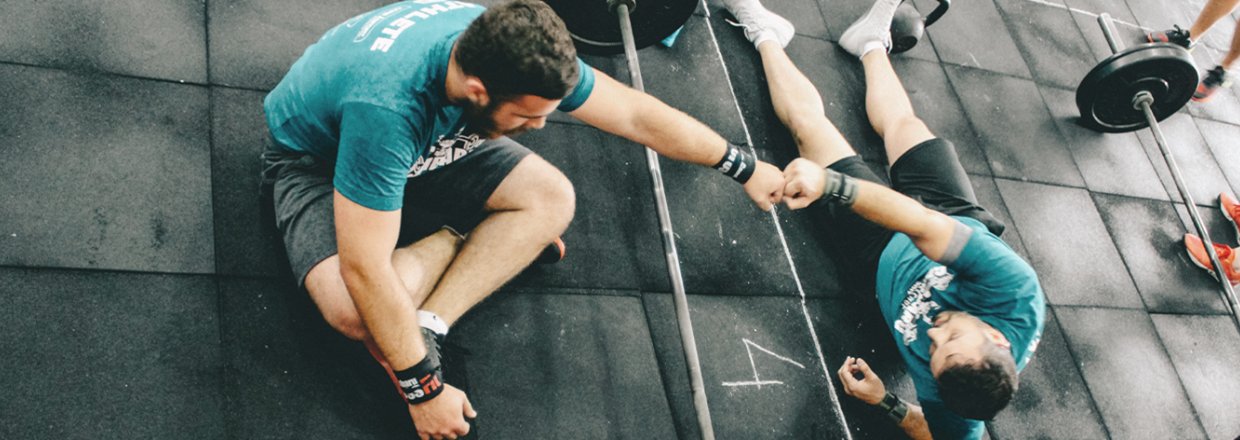The Open is the first qualifying stage of the CrossFit Games, and independent of your fitness level, the Open is celebrated for its inclusive competitive nature, meaning anyone can take part.
For most people, participation in the CrossFit Games season comes to an end just after the Open, which lasts three weeks. Some use this event as a test of their fitness and strength to support programming for their training for the rest of the year.
Head Physiotherapist of Digital Therapies, Andreas Hessner, is a CrossFit athlete and has taken part in many CrossFit competition events himself, like the Open. Here Andreas talks through five ways to optimise your recovery following the CrossFit Open.
During the CrossFit Open, the level of stress and load that it has on the body, as compared to "usual", depends on the training load and volume that you are used to.
If your training leans towards an "athlete" with a high training load and frequency, the Open will usually be a de-load in itself, since you will be doing less work during the Open than usual. These participants will often only need a few days with no or lighter training after the Open, before going back to a regular routine and working towards their new individual goals.
For the majority of participants, they might have been training alongside the Open at a similar volume, with the difference that one workout per week during the three-week competition is at a higher intensity, especially if you attempt the workout more than once to get a better score.
This will leave some participants a little "banged up" or at least fatigued (perhaps both physically and mentally) after the Open. Here are five tips for after the Open:
Go back to a beginner-mindset
Don't start chasing new high-aiming goals just yet. Allow your body to recover by keeping the same training frequency, but at a much lower intensity, focusing almost solely on optimising technique with lighter loads.
Consider doing more machine-based training such as rowing, ski-erg, bike-erg as opposed to heavier high impact exercises such as sprinting, heavy weightlifting or gymnastics. Even though many “CrossFitters” are used to a "high intensity" focus during their workouts, most would benefit from a bigger emphasis on the basics and technique, and the end of the Open is a good opportunity for this.
Sleep is the number one recovery "activity"
Clinical guidelines recommend 7-9 hours of sleep each night, for optimised health and recovery. Sleep is free, and much more effective than any amount of foam rolling, stretching, manual therapy and cryotherapy combined when it comes to recovery.
For more advice on how to achieve a restorative night’s sleep, click here.
Stretching is fine, but overrated for recovery and injury prevention
The idea that stretching alleviates DOMS (delayed onset of muscle soreness) or post-exercise soreness and decreases the risk of injuries is the myth that will not die! Looking at the last 10-15 years of research it is very well established that stretching to alleviate muscle soreness is pointless. It is ineffective and simply does not help.
If you like stretching and it feels good, by all means, go for it. Dynamic stretching is a good warm-up activity before a workout and both static and dynamic stretching can increase joint mobility and flexibility. Therefore, it's not that stretching in general is pointless, it just doesn't lower your risk of getting injured or speed up recovery.
Fuel your body
Make sure your diet is balanced and that you are not in a caloric deficit. Straight after the Open is perhaps not the time to cut down on calories. For the first week afterwards at least, make sure to replenish and especially get in the macronutrients you need to recover.
Read our tips for fuelling your body with a balanced diet here.
Remember that it’s fun
Allow yourself to have fun with training. Let's face it, the Open can be mentally taxing, especially if you are not used to sporting competitions or setting yourself high goals. If you feel drained or mentally fatigued after the Open, remember that exercise and CrossFit is supposed to be fun.
Go back to your regular classes with friends, do partner workouts, forget the long race against the clock and practise some of the skills you love and enjoy mastering.
